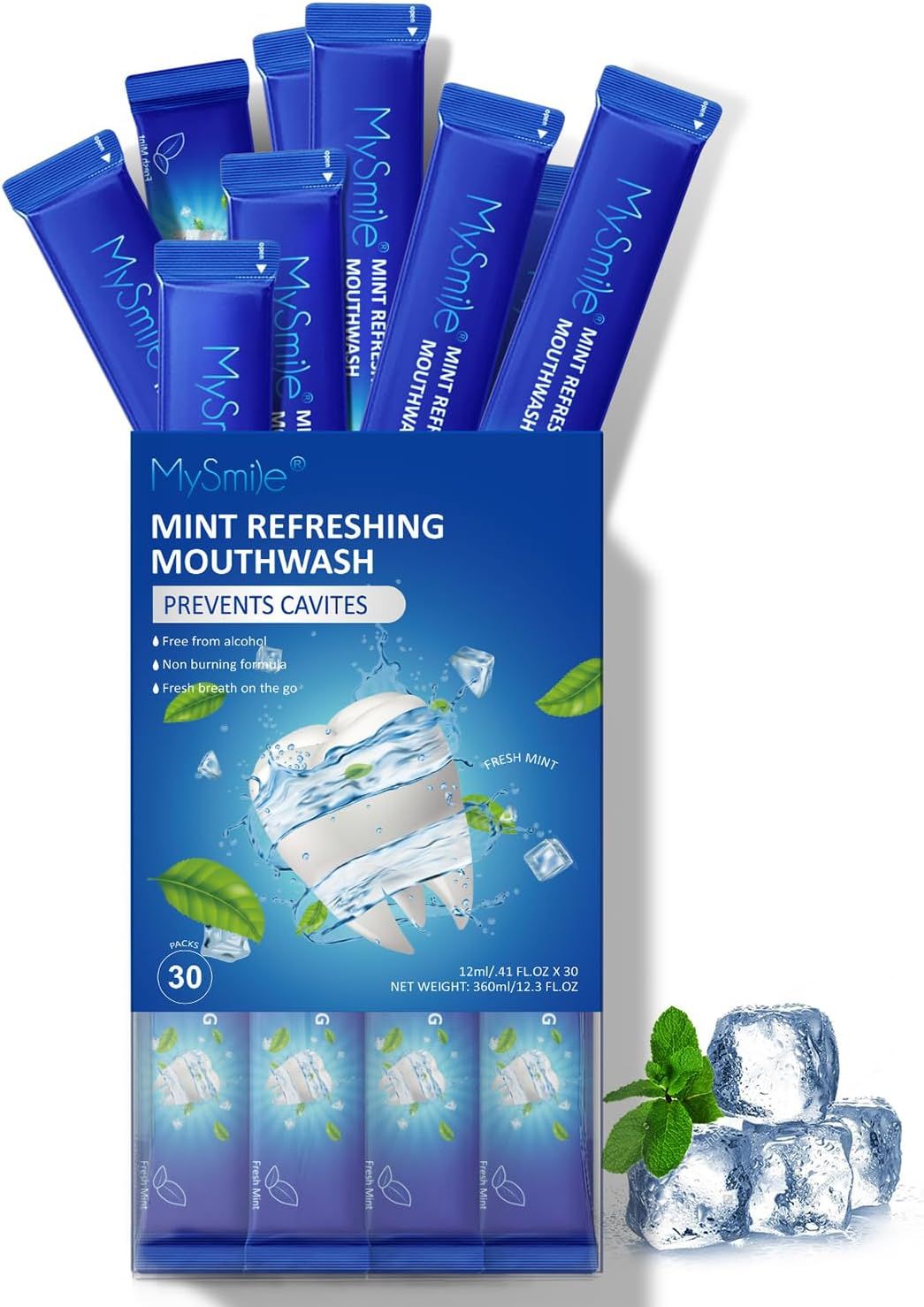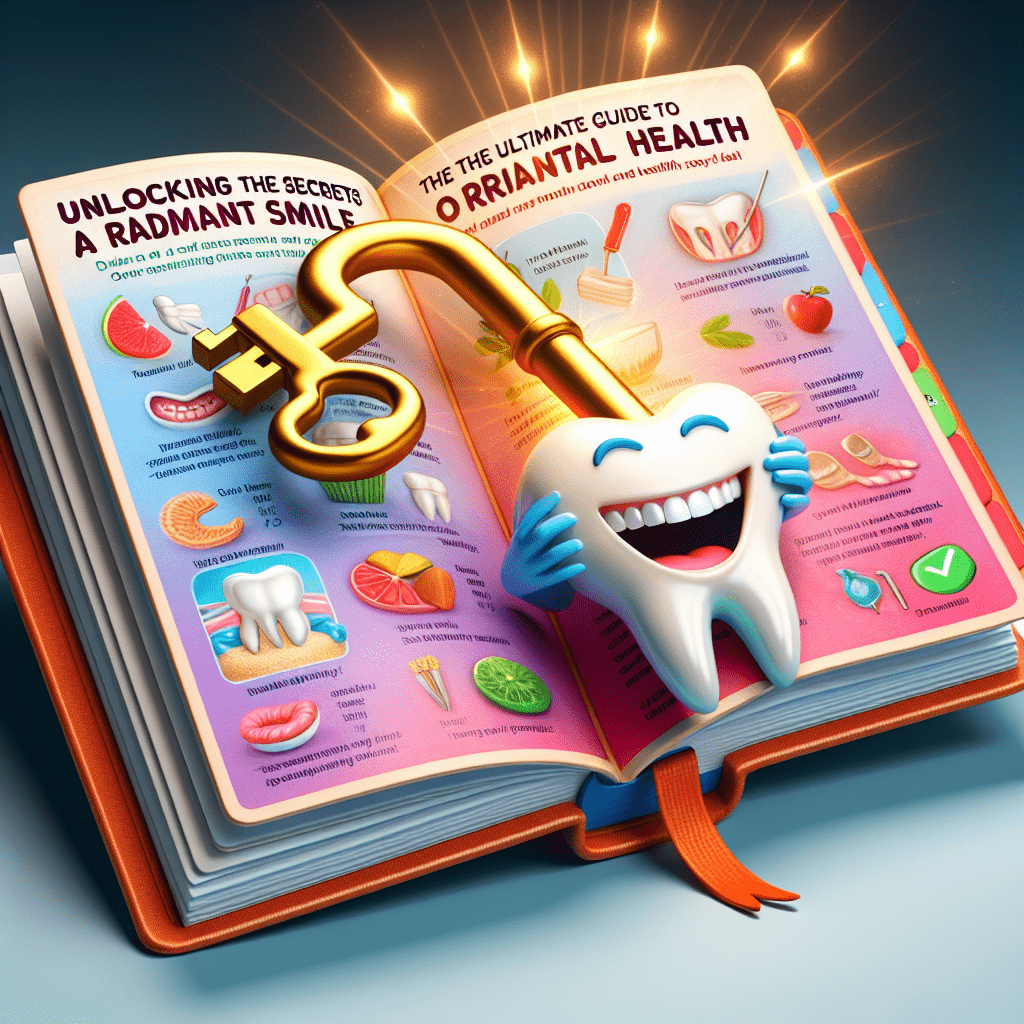Get your free Book Here

Say Goodbye to Bad Breath: Our Top Mouthwash Picks for a Fresher Smile!
Bad breath, or halitosis, can be an uncomfortable issue, affecting self-esteem and social interactions. The good news: finding a solution is easier than ever with the right mouthwash. This article presents our top picks, emphasizing their features, benefits, and practical use. With informed decisions, you can combat unpleasant odors and embrace a fresher smile.
Features of Effective Mouthwash
When selecting a mouthwash to combat bad breath, consider these key features:
- Antimicrobial Ingredients: Look for active ingredients like chlorhexidine or cetylpyridinium chloride that target bacteria causing odor.
- Fluoride Content: A good mouthwash should include fluoride to strengthen enamel and prevent cavities.
- Natural and Herbal Options: Some mouthwashes utilize ingredients like peppermint oil or tea tree oil for a natural alternative.
- Alcohol-Free Formulas: These reduce the risk of dry mouth, which can exacerbate bad breath.
- Freshening Properties: Mint or citrus flavors can provide an instant clean feeling.
- pH Balancers: Formulations that balance oral pH can inhibit the growth of odor-causing bacteria.
- Long-Lasting Effects: Choose a mouthwash that offers prolonged freshness rather than temporary relief.
- Suitable for Sensitive Teeth: Some products cater to those with sensitive gums or teeth.
- ADA Approval: Look for the American Dental Association seal, indicating clinical efficacy.
- Targeted Formulations: Certain mouthwashes are specifically designed for breath freshening rather than overall oral care.
Overview of Our Top Picks
Our curated selection of mouthwashes includes:
- Listerine Total Care: Combines fluoride protection with antibacterial agents for comprehensive care.
- ACT Anti-Cavity Fluoride Rinse: Known for strengthening enamel while effectively fighting bad breath.
- TheraBreath Fresh Breath Oral Rinse: A powerful natural solution that tackles bad breath at its source.
- CloSYS Germicidal Mouthwash: Focuses on neutralizing halitosis for longer-lasting freshness.
- Biotene Oral Rinse: Perfect for those prone to dry mouth issues, maintaining moisture and reducing odor.
- Tom’s of Maine Natural Mouthwash: An alcohol-free choice using natural ingredients to promote oral health.
- Smart Mouth Mouthwash: Offers maximum freshness through a two-pump system that combats bacteria.
- Scope Mouthwash: Widely recognized for its flavor and effectiveness, providing confidence in every sip.
- Colgate PerioGuard: Recommended for those dealing with gum issues as well as bad breath.
- Kinly Breath Spray: A compact, on-the-go option that delivers fresh breath quickly.
Why Mouthwash Is Essential
Finding the right mouthwash is critical for several reasons. It not only freshens your breath but also plays a role in overall oral health. Mouthwash can reach areas your toothbrush may miss, helping to reduce plaque buildup. Regular use can prevent gum disease and contribute to effective cavity prevention. An effective mouthwash acts as a second line of defense alongside traditional brushing and flossing.
Who Uses Mouthwash?
Mouthwash is suitable for a wide array of individuals. It appeals to anyone facing persistent bad breath, parents seeking solutions for their children, and those maintaining rigorous oral hygiene routines. It’s also beneficial for individuals with dry mouth, which can be a side effect of medications or certain health conditions. Furthermore, athletes or frequent travelers value portable mouthwash options for freshening up on the go.
What to Expect from Your Mouthwash Journey
When incorporating mouthwash into your dental routine, expect gradual improvements in breath freshness. Initially, focus on consistency. Following the manufacturer’s instructions maximizes effectiveness. While many mouthwashes provide instant freshness, remembering that long-term habits are critical for enduring results is essential.
Where and When to Use Mouthwash
Mouthwash is best utilized twice daily after brushing—once in the morning and once at night. Options vary; some mouthwashes are designed for post-brushing use, while others can work effectively between meals. It’s a versatile tool for maintaining freshness throughout your day, whether at home, work, or traveling.
How to Use Mouthwash Effectively
Proper usage enhances the mouthwash experience. Here are simple steps:
- Measure: Pour the recommended amount into a cup (usually 20 ml).
- Swish: Gently swish it around the mouth for 30 seconds to 1 minute, ensuring you contact all areas.
- Spit Out: Do not swallow; spitting out is essential to avoid undesirable side effects.
- Wait: Refrain from eating or drinking for at least 30 minutes afterward to allow active ingredients to work effectively.
Pros and Cons of Mouthwash
Pros:
- Instant freshening effects.
- Complements oral hygiene practices.
- Targets hard-to-reach bacteria.
Cons:
- Some may cause temporary burning or irritation.
- Not a substitute for brushing and flossing.
- Certain types contain alcohol, which can lead to dry mouth.
Similar Products Worth Considering
Explore these alternatives that offer breath-freshening benefits similar to mouthwash:
- Breath Freshening Strips: Convenient, portable mint strips for instant freshness.
- Chewing Gum: Sugar-free gum can stimulate saliva production, which combats bacteria.
- Breath Mints: Quick fixes that belong in your pocket for on-the-go freshness.
Opinions, Examples, and Comparisons
Mouthwash options vary widely in effectiveness based on individual needs. For instance, Listerine’s strong formulation is excellent for those seeking robust protection, while Biotene offers a gentler, hydrating alternative for sensitive users. Trying a few varieties helps find the best fit for personal preferences and oral health goals.
FAQs
1. How often should I use mouthwash?
Use mouthwash twice daily to maintain optimal oral health.
2. Can I use mouthwash if I have sensitive teeth?
Yes, choose an alcohol-free or specifically formulated mouthwash for sensitive teeth to minimize discomfort.
3. Is mouthwash a replacement for brushing?
No, mouthwash should complement brushing and flossing, not substitute them.
4. What if my bad breath persists despite using mouthwash?
Consult your dentist, as persistent halitosis may indicate underlying health issues.
5. Can mouthwash cause dry mouth?
Some mouthwashes, particularly those with alcohol, can contribute to dry mouth.
Instantly Access Your FREE Children’s Books Here!
Disclaimer: As an Amazon Associate, I earn from qualifying purchases. I may earn a commission from qualifying purchases as an affiliate. Please note that I only recommend products I believe will provide value to my readers.







